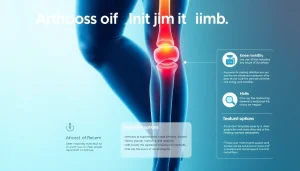Overview of the VDAP Program
The Voluntary Disciplinary Alternative Program, commonly known as the VDAP Program, is a critical initiative in the state of Alabama designed to address the challenges faced by nurses grappling with substance use and mental health issues. Instituted by the Alabama Legislature, the program aims to provide an alternative route to discipline for nurses who voluntarily disclose their struggles. This initiative is particularly significant as it emphasizes early identification and intervention, enabling participants to receive the necessary treatment and support while continuing their professional careers. Understanding the complexities of the VDAP Program, including its eligibility criteria, benefits, challenges, and support resources, is essential for any nurse considering participation.
What is the VDAP Program?
The VDAP Program serves as an alternative to traditional disciplinary measures. It allows nurses who admit to issues related to substance use or mental health to engage in a treatment plan rather than facing immediate penalties, which may include losing their nursing license. By promoting rehabilitation over punishment, the VDAP Program helps protect the integrity of the nursing profession while also prioritizing the health and well-being of its members. Through a structured framework that involves assessments, treatment requirements, and ongoing evaluations, participants are afforded the opportunity to reclaim their careers and enhance their personal recovery journeys.
Eligibility Criteria for the VDAP Program
To participate in the VDAP Program, nurses must meet specific eligibility criteria, which include:
- Admission of substance abuse or mental health issues.
- Voluntary application to the program without coercion.
- A commitment to comply with treatment protocols and program requirements.
- A clean disciplinary history prior to application (in some cases).
These criteria ensure that the program is utilized by those genuinely seeking help and are willing to commit to a structured recovery process.
Benefits of Participating in the VDAP Program
Participating in the VDAP Program offers numerous advantages for nurses:
- Professional Protection: Nurses can continue practicing while in the program, which is vital for maintaining their livelihood and professional identity.
- Supportive Environment: The program emphasizes a supportive atmosphere that fosters recovery, helping nurses feel understood and less isolated.
- Access to Resources: Participants gain access to various counseling and treatment resources tailored to their unique needs.
- Minimized Stigma: Engaging in a recovery-focused program helps reduce the stigma associated with substance abuse and mental health issues, promoting open dialogue and understanding within the nursing community.
Challenges Faced by Participants in the VDAP Program
While the VDAP Program presents valuable opportunities for recovery, it also comes with a range of challenges that participants should prepare for.
Common Misconceptions About the VDAP Program
One of the most prevalent misconceptions is that the VDAP Program is simply a way to avoid disciplinary action. In reality, participation requires substantial commitment and an openness to treatment, along with ongoing evaluations that can be rigorous. Additionally, many believe that once involved in the program, their issues will quickly resolve. However, recovery is often a long and complex journey that requires sustained effort and support.
The Stigma Surrounding Participation in the VDAP Program
Another significant challenge is the stigma that often accompanies seeking help for substance use and mental health issues. Many nurses fear that their participation in the VDAP Program may mar their professional reputation, leading to potential career ramifications or social ostracization within their professional community. This stigma can deter individuals from seeking help when they need it most, thereby prolonging their struggle.
Consequences of Failing the VDAP Program
Failure to meet the requirements of the VDAP Program can lead to serious consequences. Participants who do not adhere to treatment protocols may face disciplinary actions, including the revocation of their nursing license. This can significantly impact their career trajectory and personal lives, emphasizing the need for dedication to the program while balancing professional obligations.
Support Resources for Nurses in the VDAP Program
Recognizing the challenges involved in the VDAP Program, a variety of support resources are available to help nurses navigate their recovery journey.
Available Counseling Services for VDAP Program Participants
Counseling services play a vital role in the success of the VDAP Program. Numerous licensed professionals specialize in addiction and mental health treatments specifically tailored for healthcare providers. These services often integrate both individual and group therapy sessions, allowing participants to receive personalized support while also sharing experiences with peers.
Peer Support Groups for Nurses
Peer support groups provide an essential space for nurses to connect with others facing similar challenges. These groups foster a sense of belonging and understanding, enabling participants to share their experiences, coping strategies, and successes. By creating a network of support, peer groups can significantly enhance motivation and accountability throughout the recovery process.
Legal Resources Related to the VDAP Program
Navigating the legal implications of the VDAP Program can be daunting. However, several resources are available to assist participants in understanding their rights and responsibilities under the program. Legal professionals with expertise in nursing law and disciplinary actions can offer guidance and representation, ensuring that nurses are well-informed and protected throughout their recovery journey.
Best Practices for Success in the VDAP Program
Successfully navigating the VDAP Program requires strategic approaches and practical actions to ensure compliance and personal growth.
Strategies to Navigate the VDAP Program Effectively
To thrive in the VDAP Program, nurses should adopt several strategies, including:
- Setting Clear Goals: Establish both short-term and long-term goals to stay focused on recovery and personal growth.
- Regular Self-Assessment: Frequent evaluation of one’s progress can aid in identifying challenges early and adjusting strategies as necessary.
- Engaging Fully with Resources: Take advantage of all available resources—counseling, treatment programs, and peer groups—to bolster the recovery process.
Maintaining Transparency During the VDAP Program
Transparency is crucial for success in the VDAP Program. Participants should maintain open communication with program administrators, treatment providers, and support networks. Addressing challenges and seeking help when needed will foster a supportive environment that encourages accountability and growth.
Developing a Support Network for the VDAP Program
Building a robust support network is essential for those in the VDAP Program. This network can include fellow participants, family members, friends, and healthcare professionals who understand the intricacies of recovery. Having a solid support system enables participants to feel empowered and reduces feelings of isolation during challenging times.
Conclusion: Key Takeaways on the VDAP Program
As you reflect on your journey in the VDAP Program, it becomes evident that this initiative offers not only a chance for recovery but also a pathway to rebuilding a fulfilling professional life. Understanding the complexities of the program, the challenges involved, and the support resources available is crucial for anyone considering participation.
Reflecting on Your Journey in the VDAP Program
Reflect on personal achievements, challenges overcome, and lessons learned throughout your time in the VDAP Program. Keeping a journal or engaging in regular reflection can facilitate deeper insights into your recovery process.
Future Outlook for Nurses in the VDAP Program
The future for nurses in the VDAP Program looks promising, with ongoing advancements in supportive resources, treatment methods, and increased advocacy for reduced stigma in the nursing community. As more nurses share their success stories, the narrative surrounding substance use and mental health continues to evolve positively.
Staying Informed About Changes to the VDAP Program
Remaining up-to-date on any modifications to the VDAP Program is essential for current and prospective participants. Regularly checking for updates from official sources and engaging with peer networks can help nurses stay informed and adapt to any changes that may affect their recovery journey.








